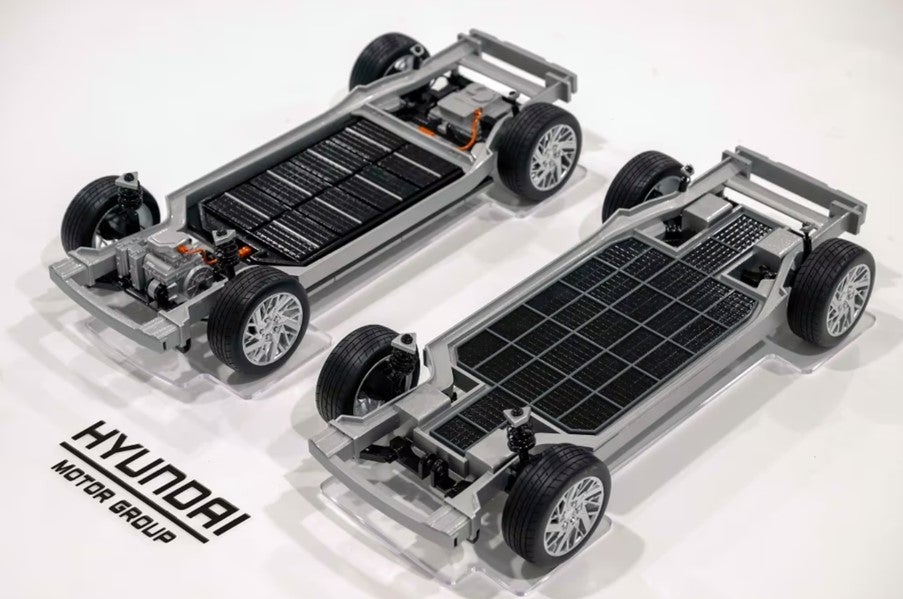
Hyundai Motor Company and Kia Corporation have unveiled their so called universal wWheel srive system or ‘uni wheel’ in Seoul, South Korea.
The automakers said the development is a functionally integrated wheel drive system that improves available space inside an electric vehicle (EV) by moving the main drive system components to vacant space within the wheel hubs.

Discover B2B Marketing That Performs
Combine business intelligence and editorial excellence to reach engaged professionals across 36 leading media platforms.
Pinion gears are connected to each other to form two linkages and this multi link mechanism enables multi axis movement to allow a wide range of suspension articulation.
Jongsool Park, of Hyundai Motor Group’s Institute of Advanced Technology Development, said: “We are pleased to showcase innovative ideas that could become game changers in the future mobility market.”
A conventional drive system using a regular constant velocity joint suffers from a decrease in efficiency and durability as the angle of drive shaft deflection increases when travelling over bumpy, undulating surfaces.
The uni wheel can transmit power with almost no change to efficiency regardless of wheel movement, ensuring high durability, Hyundai said.
Last March, Chinese OEM Dongfeng Motor (DFM) launched two new passenger cars powered by its ProteanDrive Pd18 in-wheel motors. The two models were shown at an event in Wuxi, hosted by DFM and Weifu Electric Drive Technology (WFDT), the joint venture between Weifu and Protean Electric. The E70 is the first fully homologated passenger car equipped with ProteanDrive, alongside the Voyah Zhuiguang, a luxury sedan built on a new vehicle platform also using in wheel motors. As with HMG, the technology enables improvements in space, acceleration and cornering speed.






